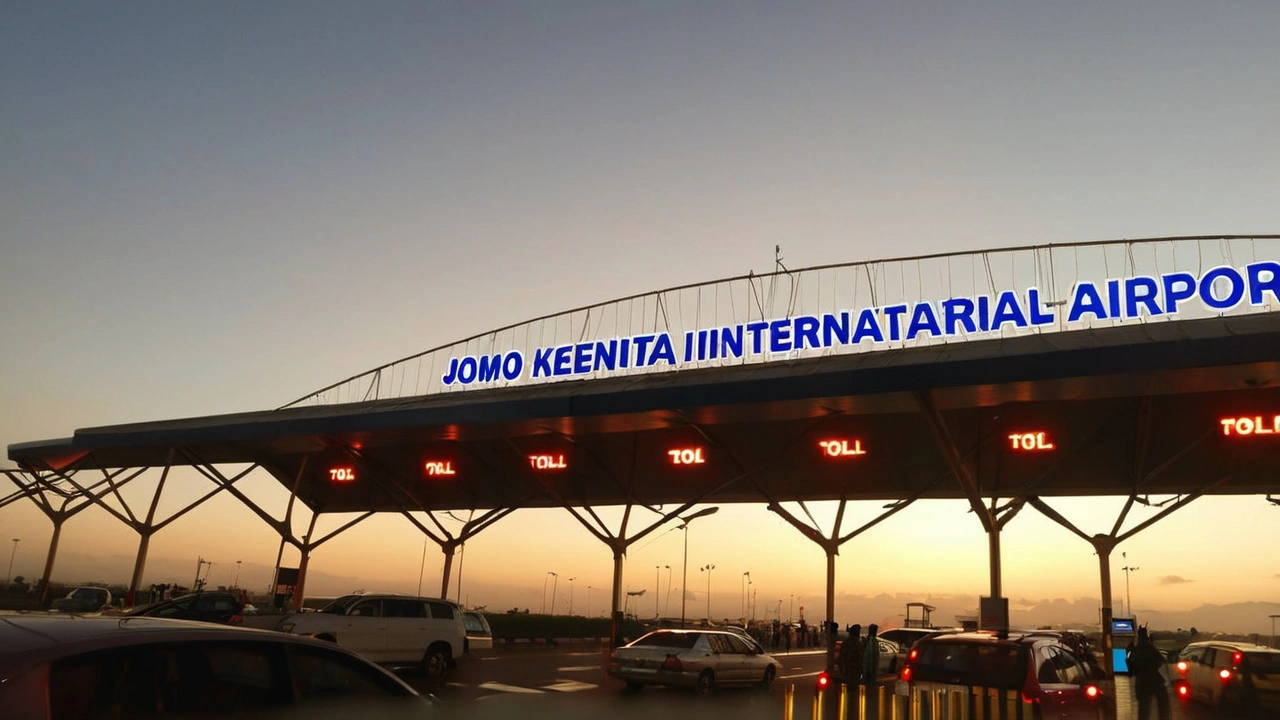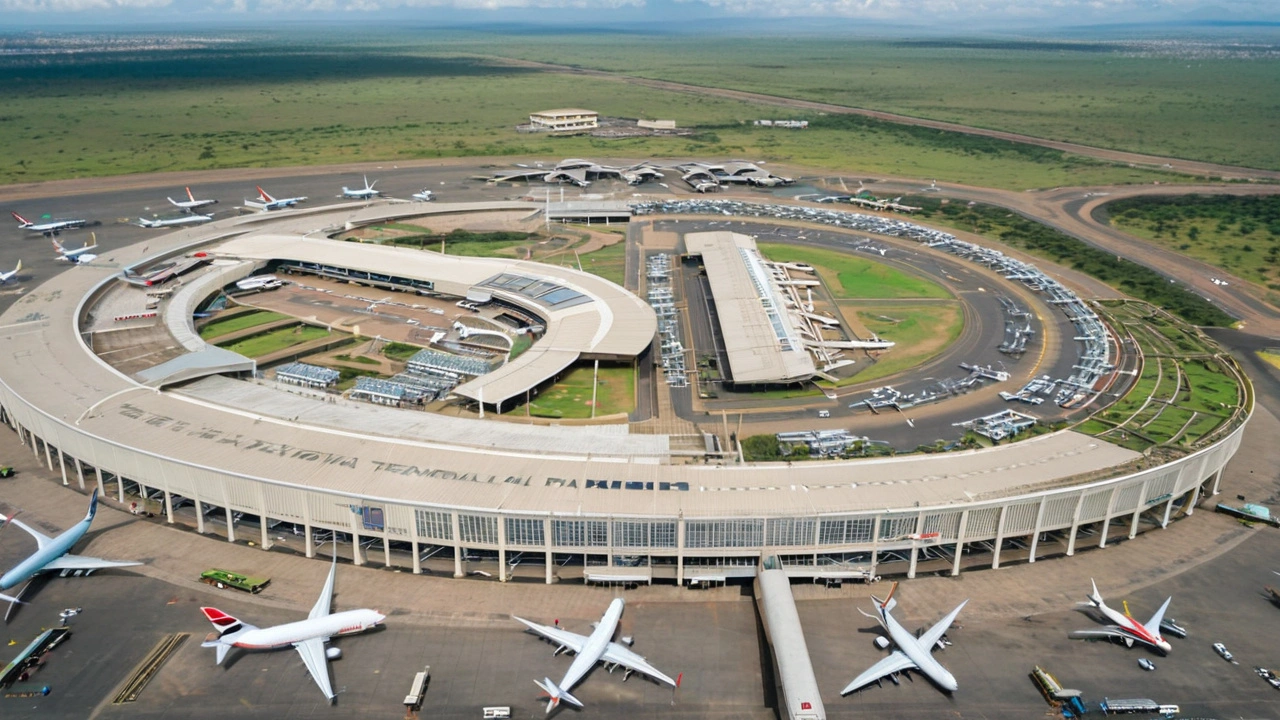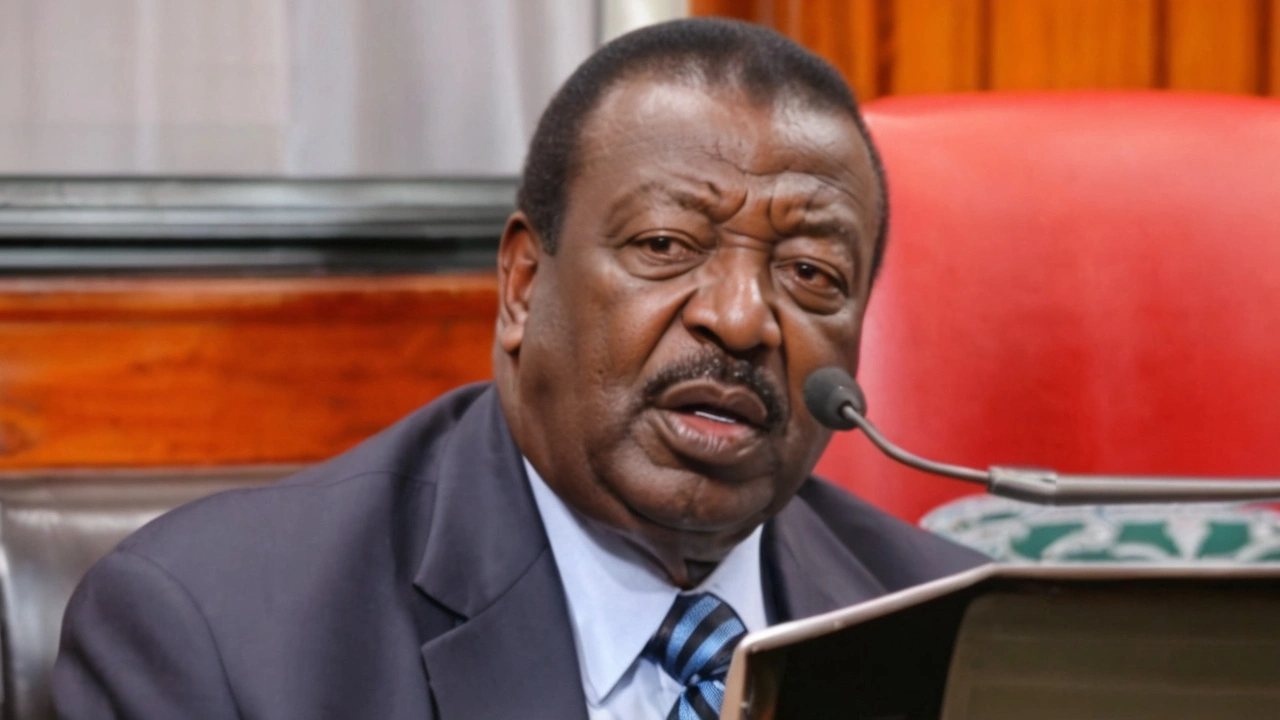Mudavadi Debunks JKIA Sale Rumors
Prime Cabinet Secretary Musalia Mudavadi has unequivocally stated that Jomo Kenyatta International Airport (JKIA) is not up for sale. Responding to swirling rumors and growing public concerns, Mudavadi assured the public that the strategic asset remains fully in the government's hands. Any decisions involving the airport, he pointed out, would be driven by comprehensive public consultation and must receive parliamentary approval. Such a significant move requires transparency, ensuring that all Kenyans are aware and approving of the initiative.
The speculative reports suggested that the government was planning to privatize JKIA's operations, involving secretive back-door dealings to hand over the airport to private entities. These rumors have been floating around for some time, causing widespread panic among citizens wary of losing such a vital national asset. Mudavadi's statement, therefore, comes as a timely and crucial reassurance, dispelling fears and rumors about the airport's future.

Collaborative Efforts for Modernization
Addressing the real motive behind recent government activities concerning the airport, Mudavadi clarified the administration's intent to undertake a much-needed modernization and expansion project for JKIA. The aim is to position the airport as one of the largest and busiest hubs on the African continent. To finance this expansion, the government plans to leverage a Public-Private Partnership (PPP) model rather than outright privatization.
In elaborating on the PPP approach, Mudavadi explained that this model allows private investors to fund and facilitate the construction of a new terminal. This terminal is expected to significantly increase the airport's capacity, enabling it to handle an estimated 20 million passengers annually. The previous proposal for what was known as the 'green terminal' faced multiple hurdles due to litigation issues, making the new plan a vital step towards the airport's growth.
A Focus on Transparency
Emphasizing the theme of transparency, Mudavadi stressed that every step of the expansion and modernization process would be carried out openly and legally. There would be no room for clandestine agreements or under-the-table deals. The public would be kept informed, and their opinions would be factored into any major decisions. The Prime Cabinet Secretary reiterated that involving private investors in strategic public enterprises like JKIA demands stringent oversight and adherence to legal frameworks.
This dedication to transparency is aimed at building public trust and ensuring that all stakeholders, from everyday citizens to parliamentarians and potential investors, are on the same page. By engaging in an open dialogue, the government seeks to foster a collaborative environment, ensuring that the expansion benefits not just the airport but the broader Kenyan economy as well.

Future Prospects for JKIA
The modernization of JKIA comes at a critical juncture for Kenya's aviation sector. By expanding the airport's capacity, the government aims to enhance connectivity, bolster tourism, and facilitate trade. Currently, JKIA serves as a pivotal gateway for both international and domestic flights, making it an essential infrastructure asset for the nation.
The new terminal's expected capacity to handle 20 million passengers annually will further solidify JKIA's status as a major aviation hub. This ambitious target also reflects the government's broader vision of transforming Kenya into a significant player in the global aviation industry. Enhanced passenger capacity will attract more international flights, boost local businesses, and create job opportunities, thus contributing to the country's overall economic growth.
Challenges and Path Ahead
Despite the positive outlook, the expansion initiative is not without its challenges. The project will require meticulous planning, significant investment, and seamless execution. Managing public expectations and maintaining transparency throughout the process will be crucial to its success. Moreover, the government and investors must navigate potential legal and logistical hurdles that could arise.
Nevertheless, with a clear roadmap and a commitment to open governance, the expansion of JKIA holds promising prospects. Mudavadi's reassurance that the airport is not for sale but will instead undergo strategic expansion through PPPs provides a balanced approach between leveraging private investment and retaining public ownership. This model not only ensures the airport's growth but also safeguards it as a national asset for future generations.
As Kenya looks forward to a bustling and modernized JKIA, the focus remains on delivering a project that aligns with national interests and meets global standards. Through cooperative efforts and transparent practices, the nation's aviation sector is poised for a transformative leap.


Josh Tate
July 23, 2024 AT 19:49I get why folks are worryin about the airport bein sold, it feels like a piece of our home is on the line.
The idea of a PPP sounds better when you hear it explained clearly.
John Smith
August 7, 2024 AT 21:46Honestly, the whole “sale rumor” thing is just a distraction from the government's incompetence in handling infrastructure.
Alex Soete
August 22, 2024 AT 23:43Seeing the government push for a modern terminal is a real boost for Kenya’s future.
A PPP can bring in expertise while keeping the airport in public hands, which is a win‑win.
Let’s stay hopeful and keep the conversation constructive.
Cara McKinzie
September 7, 2024 AT 01:40Wow, another “miracle” plan that will probably drown in paperwork and endless bickeringg.
The media hype makes me want to scream!
Joseph Conlon
September 22, 2024 AT 03:36I’m not saying the government’s plans are outright terrible, but every time a big project is announced, the reality tends to lag behind the hype.
Historically, PPPs in the region have stumbled over bureaucratic red tape, cost overruns, and disputes over revenue sharing.
Even if the new terminal finally opens, who’s to guarantee that ticket prices won’t skyrocket for ordinary travelers?
Moreover, the promise of “transparent” negotiations often evaporates once contracts are signed behind closed doors.
It’s worth remembering that a “public‑private partnership” is just a fancy term for splitting profits while shifting risks onto the state.
In short, I’d keep a skeptical eye on the rollout and demand concrete accountability measures.
Mohit Singh
October 7, 2024 AT 05:33So now we’re supposed to cheer for a “partnership” while ignoring the fact that private investors will likely prioritize profit over people.
If the government truly cares about Kenyans, it should fund the expansion itself instead of handing over control.
Damian Liszkiewicz
October 22, 2024 AT 07:30😊 The announcement that JKIA will stay in Kenyan hands while embracing a PPP is a welcome clarification for many who feared a covert sale.
⚖️ Transparency, as emphasized by the Prime Cabinet Secretary, is not just a buzzword but a prerequisite for any large‑scale infrastructure venture.
When citizens see a clear roadmap, they gain confidence that their tax dollars are being put to good use.
A new terminal capable of handling 20 million passengers annually could transform Nairobi into a genuine continental hub.
Such capacity not only boosts tourism but also streamlines cargo operations, which are vital for Kenya’s export economy.
However, the success of this project hinges on robust legal frameworks that prevent corruption and ensure fair profit distribution.
Stakeholders must be granted access to contract details, budget breakdowns, and environmental impact assessments.
Public consultations should go beyond symbolic town‑hall meetings and involve real decision‑making power.
In the past, rushed projects have led to cost overruns that burden taxpayers for decades.
Learning from these mistakes, the government can set strict milestones and penalties for delays.
Private investors bring expertise, but they also seek returns, so the partnership must balance profit motives with public interest.
A well‑crafted concession agreement can guarantee that revenue sharing benefits both the state and the investors.
Moreover, encouraging local contractors to participate can create jobs and foster skill development.
The environmental sustainability of the new terminal should also be a priority, with green technologies reducing carbon footprints.
Overall, if the PPP is managed with the transparency promised, JKIA could indeed become a shining example of modern African aviation.
Let’s stay vigilant, stay informed, and celebrate progress when it’s earned. 🌟
Angela Arribas
November 6, 2024 AT 08:26While the enthusiasm for a new terminal is understandable, it is essential to use correct punctuation and avoid vague statements.
Assertions such as “the airport will become a hub” require substantiated data, not just hopeful rhetoric.
Let’s demand factual updates rather than relying on optimistic speculation :)
Sienna Ficken
November 21, 2024 AT 10:23Oh, wonderful – another grand vision of “modernization” that will magically appear like a unicorn at 3 AM.
In reality, expanding capacity from 7 to 20 million passengers demands meticulous planning, not just glossy press releases.
One might suggest a phased approach: first secure financing, then address runway upgrades, and finally tackle terminal design.
But sure, let’s ignore the pesky details and hope the “PPP” fairy sprinkles money everywhere.
Maybe next time we’ll get a roadmap that actually looks like a roadmap.
Zac Death
December 6, 2024 AT 12:20It’s refreshing to see the government acknowledge public concerns and pivot towards a partnership model instead of a straight sale.
Balancing private expertise with public oversight can drive the project forward while keeping Kenyan interests front and center.
We should stay engaged, ask tough questions, and celebrate the milestones as they happen.
If the new terminal truly delivers on its promise, the ripple effects on tourism, trade, and job creation will be huge.
Let’s keep the dialogue open and constructive – after all, a shared vision works best when everyone feels heard.
Looking forward to seeing the plans unfold and hoping the implementation lives up to the hype.
Lizzie Fournier
December 21, 2024 AT 14:16Great point, Zac – staying proactive and keeping the conversation friendly makes all the difference.
I’d add that regular community updates can turn good intentions into real accountability.
Let’s all pitch in by sharing reliable info and supporting the project responsibly.